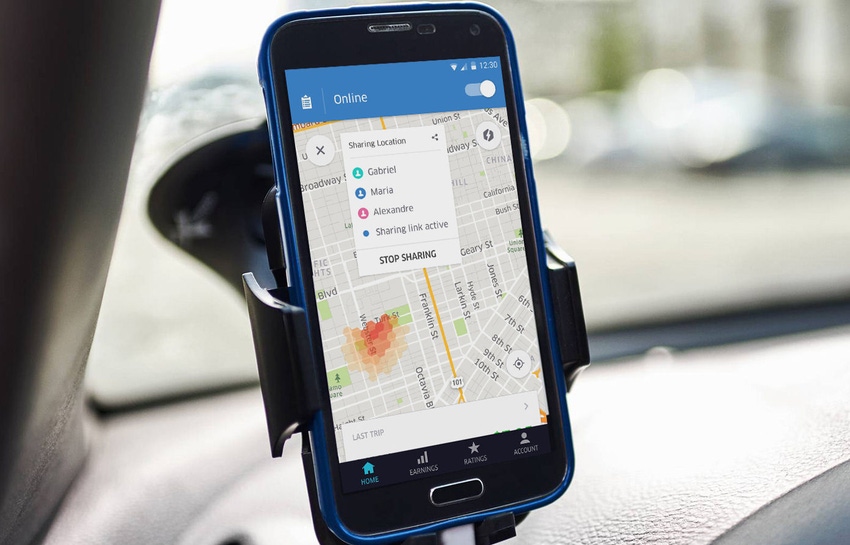With society under lockdown and consumers becoming increasingly sensitive to enclosed spaces, Uber was always in a precarious position and now it appears the axe is swinging.
May 19, 2020

With society under lockdown and consumers becoming increasingly sensitive to enclosed spaces, Uber was always in a precarious position and now it appears the axe is swinging.
Less than complementary financials were released in recent weeks, and now the Wall Street Journal is suggesting 3,000 jobs could be lost at the firm as 45 offices are shut down. Drivers aren’t technically classed as employees, so not included in this figure as the firm attempts to save $1 billion in expenses.
“We’re seeing some signs of a recovery, but it comes off of a deep hole, with limited visibility as to its speed and shape,” CEO Dara Khosrowshahi said in an email to staff.
Uber Eats is one area which is on the rise, though success is no-where near high enough. Losses from reduced taxi operations are hitting the organisation hard; Uber is an incredibly expensive business to run after all.
Looking at the financials from May 7, Uber taxi bookings were down 3% year-on-year for the period running to March 31. By way of comparison, the previous quarter saw taxi bookings increase 20% year-on-year. Although not officially confirmed, bookings for the taxi service in April were allegedly down 80% year-on-year.
“I will not make any claims with absolute certainty regarding our future,” Khosrowshahi said in the memo.
“I will tell you, however, that we are making really, really hard choices now, so that we can say our goodbyes, have as much clarity as we can, move forward, and start to build again with confidence.”
This is perhaps a major turning point not only for Uber as a business, but maybe the overarching sharing economy. This is a segment which promised great things but might struggle in light of a new societal normality.
As little is known about COVID-19 and there are still many questions about how it is transmitted, confidence in public transport and taxis will be impacted. This is the long-term risk which Uber faces; people can’t use taxis today, but will they want to use taxis in the future?
To restore confidence, Uber might have to introduce strict cleaning procedures to prevent any transmission of the disease. This is costly (both in terms of cash and time) and impractical. If Uber is to make money, it needs drivers to be as efficient as possible, minimising the time where the cars are empty.
Looking at the financials of the business currently, Uber Food is playing a much more prominent role.
Financial performance of Uber to March 31 – bookings (US Dollar ($), thousands) |
Metric |
Revenues |
Year-on-year |
% of total |
If the Wall Street Journal reports are to be believed, bookings for the taxi service in the second quarter are roughly half of 2019 numbers while Eats is continuing to grow. Considering how expensive it is to run a ride-hailing business (vehicle costs, driver salaries and bonus, fuel, sales and marketing, R&D etc.) Uber was already a loss-making business. This is likely to look apocalyptic when the next financial statement is released, a period which will include the heaviest impacts of COVID-19 lockdowns.
The beacon of hope for the moment at Uber is the food delivery business, though how sustainable this is once societies start to reopen remain to be seen. There will not be an immediate return to how the world worked prior to COVID-19, but the gains some technology firms are experiencing will also be eroded.
This is the question which remains; what will Uber look like in 12 months?
We suspect society will be very slow to return to shared transport services, while the Uber operations might be hit by new regulation on hygiene standards. Fortunately, the team is already playing a part in the food delivery segment, which could be compounded by the completion of a Grubhub acquisition, and the Freight operations could also be expanded.
This is a very important moment for Uber. Unless it reacts very precisely, it could be in a very precarious position in six months.
Telecoms.com Daily Poll:
Who would you consider the King of Innovation in the telco industry currently?
Reliance Jio (19%, 26 Votes)
Other (14%, 20 Votes)
Vodafone (12%, 17 Votes)
SK Telecom (10%, 14 Votes)
China Mobile (9%, 13 Votes)
AT&T (9%, 13 Votes)
Deutsche Telekom (9%, 13 Votes)
Orange (6%, 9 Votes)
Telefonica (6%, 9 Votes)
T-Mobile US (4%, 6 Votes)
Total Voters: 140
About the Author(s)
You May Also Like








.png?width=300&auto=webp&quality=80&disable=upscale)


_1.jpg?width=300&auto=webp&quality=80&disable=upscale)


.png?width=800&auto=webp&quality=80&disable=upscale)